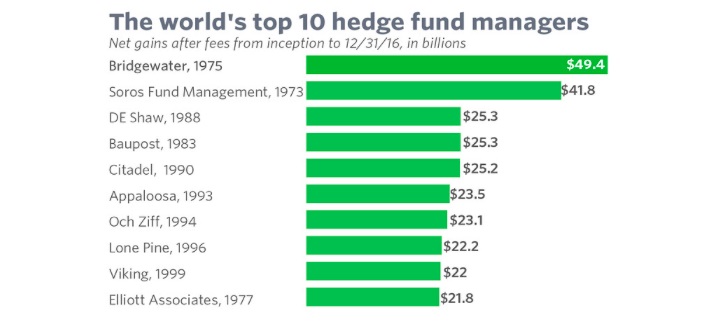As the founder and head of Bridgewater, the world’s largest hedge fund with 350 institutional clients, Ray Dalio knows a thing or two about the traditional investment business.

Image: MarketWatch
He has certainly spotted and steered his firm around traditional asset bubbles in the past. But does he know how to spot crypto asset bubbles? That is yet to be seen.
Recently, Dalio joined his friend and fellow billionaire finance mogul Jamie Dimon in calling Bitcoin a bubble. He states that Bitcoin is “not an effective storehold of wealth because it has volatility to it, unlike gold.”
“Bitcoin is a highly speculative market. Bitcoin is a bubble."
There are several reasons why Mr. Dalio doesn’t believe in the potential of Bitcoin and other cryptos at large. According to Bridgewater criteria, there are two important facets to being considered as a valid currency. The first is that it must serve as a medium of exchange and the second is that it must be a store of wealth.
Dalio goes on to say:
“It's a shame, it could be a currency. It could work conceptually, but the amount of speculation that is going on and the lack of transactions [hurts it].”
According to him, the action and resulting exuberance in cryptocurrencies has “very much” been driven by people simply thinking that they can sell it at a higher price, without any understanding of fundamentals, “so it’s a bubble.”
Dalio isn’t the only big shot finance CEO with a negative stance on Bitcoin and cryptocurrencies. Last week, JP Morgan CEO, Jamie Dimon took a shot at Bitcoin saying “it is a fraud.”
Only time will tell if the two financiers are right in their predictions about cryptocurrencies in general and Bitcoin in particular. Dalio’s comments seem not to have spooked markets as much as Dimon’s. Market’s dropped rapidly last week in the wake of negative news from China and Dimon’s commentary.
